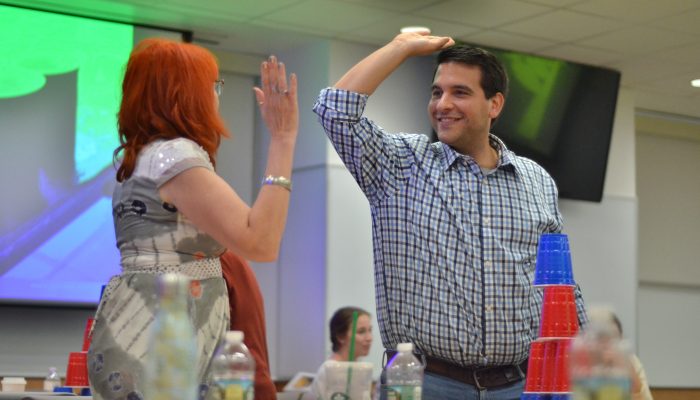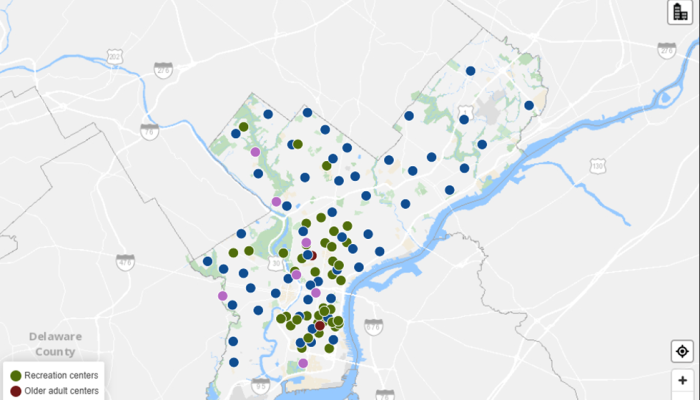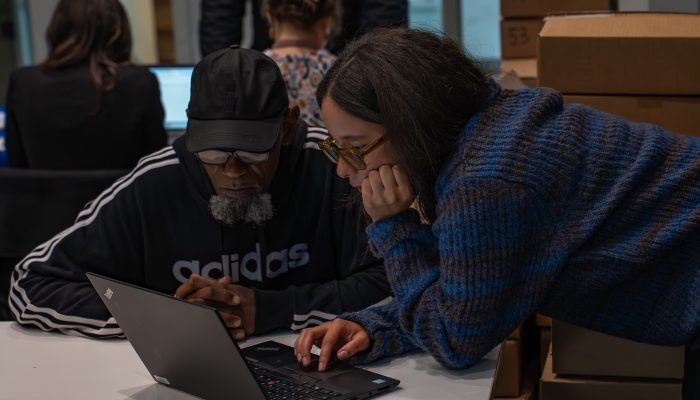Week 1: Innovation as a Process
Written by: Molly Riordan, Good Food Purchasing Coordinator at the Department of Public Health
When is the last time you walked into a meeting at work with a group of people you didn’t know, whose jobs you didn’t understand or even know existed until they introduced themselves, and found yourself within an hour laughing, stifling snorts of giggles, not at one another, but with one another?
Never? Me too. Until today.
The 6th cohort of the Academy for Municipal Innovation has officially begun!
Look at these Innovators at work! ✨#PHLInnovationManagement pic.twitter.com/KF7LYynKVq— PHLInnovation (@PHLInnovation) October 2, 2018
Today was the first day of the Academy for Municipal Innovation (AMI). We, the sixth cohort, join 100 City of Philadelphia employees who have participated in the Academy in previous years. AMI alumni are a quiet but growing force in city government. Mention the Academy to a program graduate and their eyes brighten: “I did the Academy! You should apply. It’s such a good experience. It gets you to think differently.”
So, how do these influencers, these AMI alums, think differently? For starters, they think that staff spending one afternoon each week on Jefferson University’s campus, exploring how design thinking and systems analysis can improve city government, and building skills meant to spur creativity and camaraderie amongst colleagues from 18 different departments is valuable. I think that’s good, if not great, thinking.
At our first class, we played a game you might have seen at a teambuilding session or in your college comedy improv group: “Yes, and…” “Yes, and…”, in the improv world, is meant to get performers riffing off of one another’s ideas and in tune with each other’s thinking, thereby putting them on the same wavelength and more readily performing coherent, zany, hilarious skits.
Part of the hilarity derives from a prohibition against saying “no.” “No” stops the conversation, stops the fun, stops the process. “No,” is an ending; “Yes, and…” welcomes an idea, and pushes it further. “Yes” feels better than “no,” and people respond more actively, more creatively, when the conversation is affirming and positive.
Could you use “Yes, and…” to shut down a bad idea? Sure. But by being forced to positively acknowledge the idea presented, you simultaneously acknowledge your colleague – no matter how much you might disagree with their statement – and in your response, inherently address how their idea could be made better. That type of affirmation and constructive reframing may sound alien to the government function in today’s political environment—which is all the more reason that we, at the City level, where real change is happening, continue to say, “Yes, and…” to our co-workers.
I am thrilled to be spending my Tuesday afternoons over the next 6 weeks with a group of people who I can already tell are smart, curious, dedicated, and eager to see how the process of innovation–applying tools and strategies to problems to come up with collaborative solutions that far surpass any of our individual abilities or imaginations–can improve Philadelphia city government. There has never been a more important time to bring innovation to government, to stand up and say “Yes! And…” I hope you’ll enjoy reading about our journey.
What is the Academy for Municipal Innovation?
AMI is a seven-week program that introduces participants to the principles and practice of innovation. Participants will learn to integrate tools and techniques of innovation drawn from design thinking, system thinking, business analytics, and ethnographic research to discover innovative solutions to complex real-world problems. The program will be delivered in a studio setting, anchored in Jefferson University’s (formerly Philadelphia University) signature nexus learning pedagogy of active, collaborative, and real-world learning. Each session will introduce practical techniques & tools that can be immediately applied at work to inspire innovation through collaboration.
Throughout the program, the City (Innovation Management) will offer opportunities to further develop the skills and tools that participants are learning in the classroom. Brown bag lunches, innovation consulting sessions, and workshops will take place throughout the fall to encourage students to engage with the material in the context of their everyday portfolios, and to provide them with a space to meet past graduates and learn about how they’ve integrated innovative thinking into their roles.




